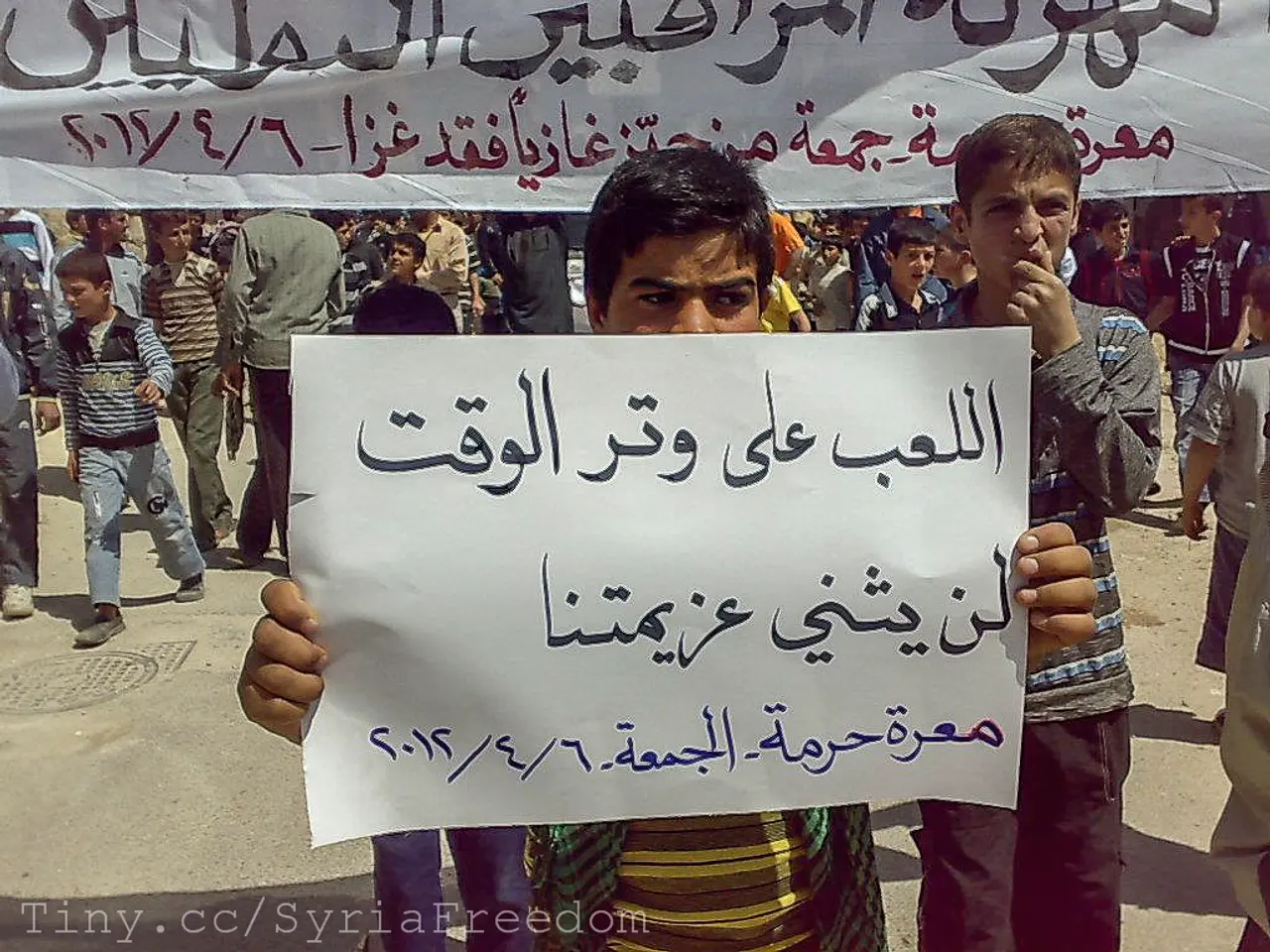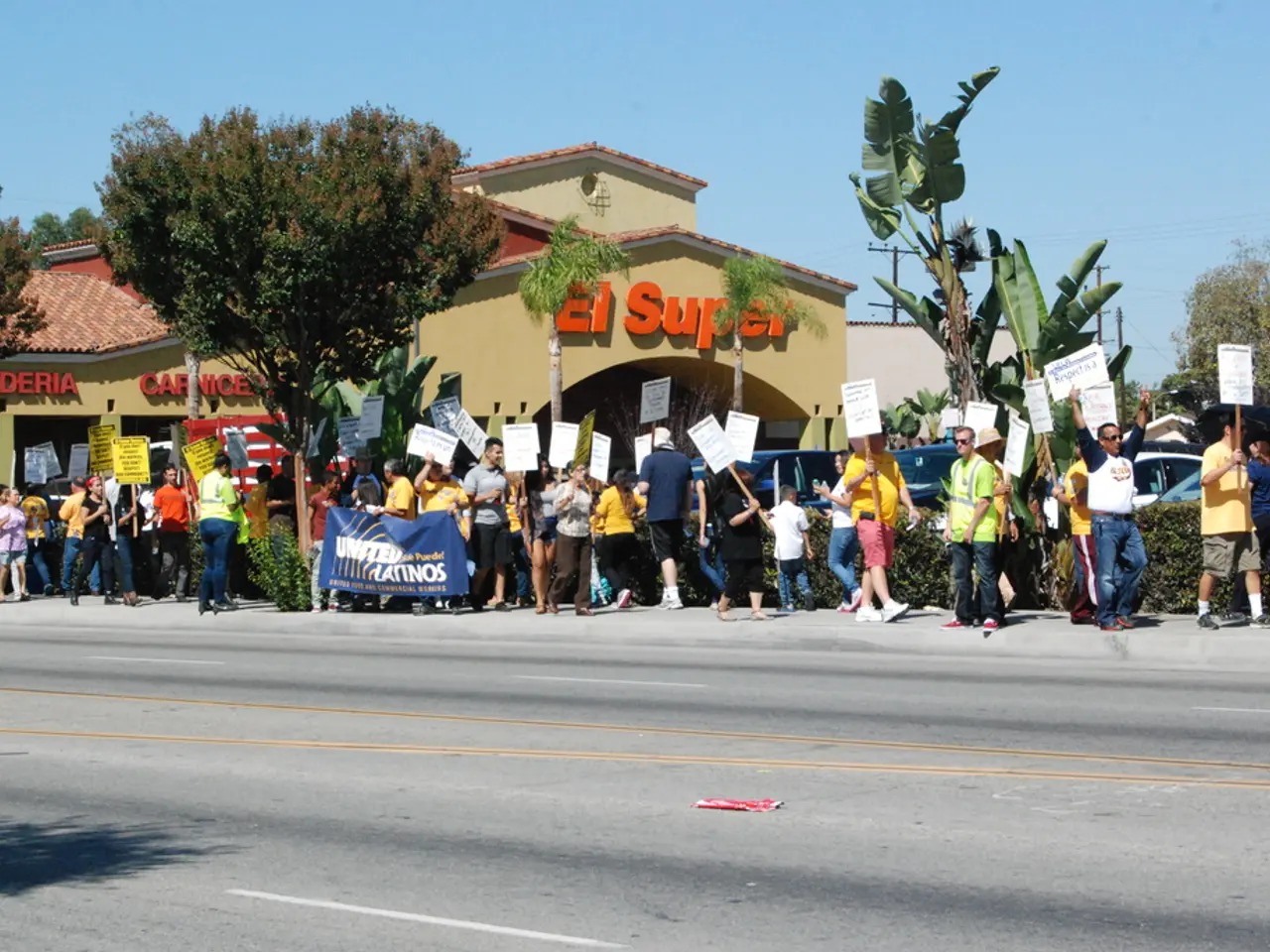Demonstrators in Bangkok call for the resignation of the suspended prime minister after a deadly clash ensues
Shinawatra Dynasty's Continued Political Struggle in Thailand
Thailand's political landscape has been marked by unrest for nearly two decades, with the Shinawatra family, particularly Thaksin Shinawatra and his daughter Paetongtarn Shinawatra, at the centre of the turmoil.
Thaksin, who served as the 23rd prime minister, was ousted in a 2006 military coup, a key episode in the family's political history. His premiership, as well as that of his sister Yingluck, Thailand's 28th prime minister, were characterised by deep divisions in Thai society and frequent legal and political battles for power.
Paetongtarn, Thaksin's youngest child, has followed in the family tradition of holding power through their Pheu Thai Party. Like her father and aunt before her, Paetongtarn has faced increasing political pressure. Last month, she was suspended by the Constitutional Court over a controversial leaked phone call regarding the Thai-Cambodian border crisis.
This suspension reflects persistent legal challenges used against the Shinawatras and signals significant political instability linked to the family's leadership.
On Saturday, protesters rallied in Bangkok demanding Paetongtarn's resignation. The number of protesters was approximately 2,000 by mid-afternoon, with more expected to join. The Yellow Shirts, a conservative, pro-royalist group known for being longtime foes of Paetongtarn's father, were present at the rally.
Jittakorn Bussaba, a well-known conservative columnist and protester, called for Paetongtarn to resign, accusing her of having blood on her hands due to people dying because of her. Ammorn Khunthong, a 58-year-old protester, stated that Thaksin and his family should no longer run or command the country.
The border dispute between Thailand and Cambodia, which has been ongoing for decades, has been a source of controversy for Paetongtarn. She is accused by some locals of allowing the border dispute to escalate due to her close ties with Cambodia's former prime minister, Hun Sen.
Thaksin, a billionaire tycoon, was often accused of bullying critics and not separating his business dealings from those of the government. The army in Thailand has played a major role in politics and has staged 13 successful coups since the country became a constitutional monarchy in 1932. The Yellow Shirts were instrumental in ousting the elected government of Thaksin's sister, Yingluck Shinawatra, in a 2014 coup.
The rally took place at Bangkok's Victory Monument, with protesters voicing their support for the country's army. The most recent clashes in the border dispute ended with an uneasy Malaysian-brokered ceasefire on July 29.
In summary, the Shinawatra family's political involvement has fueled recurring unrest in Thailand, stemming from their contested hold on power, judicial confrontations, military interventions, and widespread public division, from Thaksin's 2006 ousting through Paetongtarn's 2025 suspension.
- The unrest in Thailand's political landscape is often reported in general news outlets, focusing on the Shinawatra family's ongoing struggle for power, particularly the legal challenges faced by Thaksin Shinawatra, Yingluck Shinawatra, and most recently, Paetongtarn Shinawatra.
- The business dealings of billionaire tycoon Thaksin Shinawatra were frequently criticized for being intertwined with government affairs, fueling contention in the realm of politics and government.
- The recent suspension of Paetongtarn Shinawatra by the Constitutional Court over a controversial phone call was covered extensively in news outlets, signifying political instability that could impact Thailand's future.
- Protesters in Toronto, as well as other cities around the world, have expressed concern over the Shinawatra family's continued political involvement in war-and-conflicts such as the Thai-Cambodian border crisis, demanding accountability from the family and calling for change in the government.








